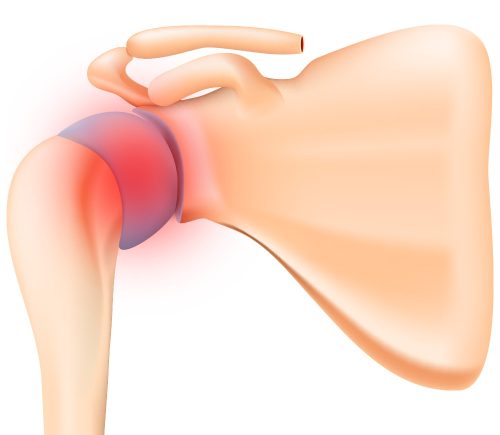Frozen Shoulder
Frozen Shoulder
What is Frozen Shoulder?
Also known as adhesive capsulitis. It is an inflammatory condition of the ball and socket joint where the capsule tightens and greatly restricts shoulder range of movement.
How does Frozen Shoulder occur?
The causes for a frozen shoulder are not clearly defined, it often happens spontaneously, occurs in people between the ages of 40-60 and occurs more in women. It can occur after a fracture, surgery or trauma. A frozen shoulder progresses through three stages, usually over one to two years. The initial “Freezing” stage is painful and range of movement starts to become restricted. It’s often painful at night and can stop you from getting a good sleep. In the second or “Frozen” stage your shoulder movement will be very restricted but pain should reduce. In the third and final “Thawing” stage your range of movement will gradually improve. People who have conditions such as diabetes and thyroid disorders are also more likely to get adhesive capsulitis.

How does Frozen Shoulder occur?
The causes for a frozen shoulder are not clearly defined, it often happens spontaneously, occurs in people between the ages of 40-60 and occurs more in women. It can occur after a fracture, surgery or trauma. A frozen shoulder progresses through three stages, usually over one to two years. The initial “Freezing” stage is painful and range of movement starts to become restricted. It’s often painful at night and can stop you from getting a good sleep. In the second or “Frozen” stage your shoulder movement will be very restricted but pain should reduce. In the third and final “Thawing” stage your range of movement will gradually improve. People who have conditions such as diabetes and thyroid disorders are also more likely to get adhesive capsulitis.
What we can do to fix it!
Unfortunately treatments for frozen shoulder are limted. Physiotherapy aims to minimise pain as well as maintain as much range of motion, strength and function as possible. During the “thawing phase” physiotherapy becomes more important as range of motion and strength needs to be restored.
- Specific exercises: Specific stretching to maintain and improve range of movement of the shoulder joint. A progressive strengthening program of muscles surrounding the shoulder and shoulder blade to correct abnormal movement patterns and stop secondary injuries to the tendons.
- Soft tissue release: To decrease spasm in the muscles surrounding the shoulder
- Joint mobilizations: To increase range of movement and decrease pain in your shoulder
OUr conditions
Need More Information
For more information, check out our frequently asked question. If you still can’t find your answer give us a call, we would love to help.



